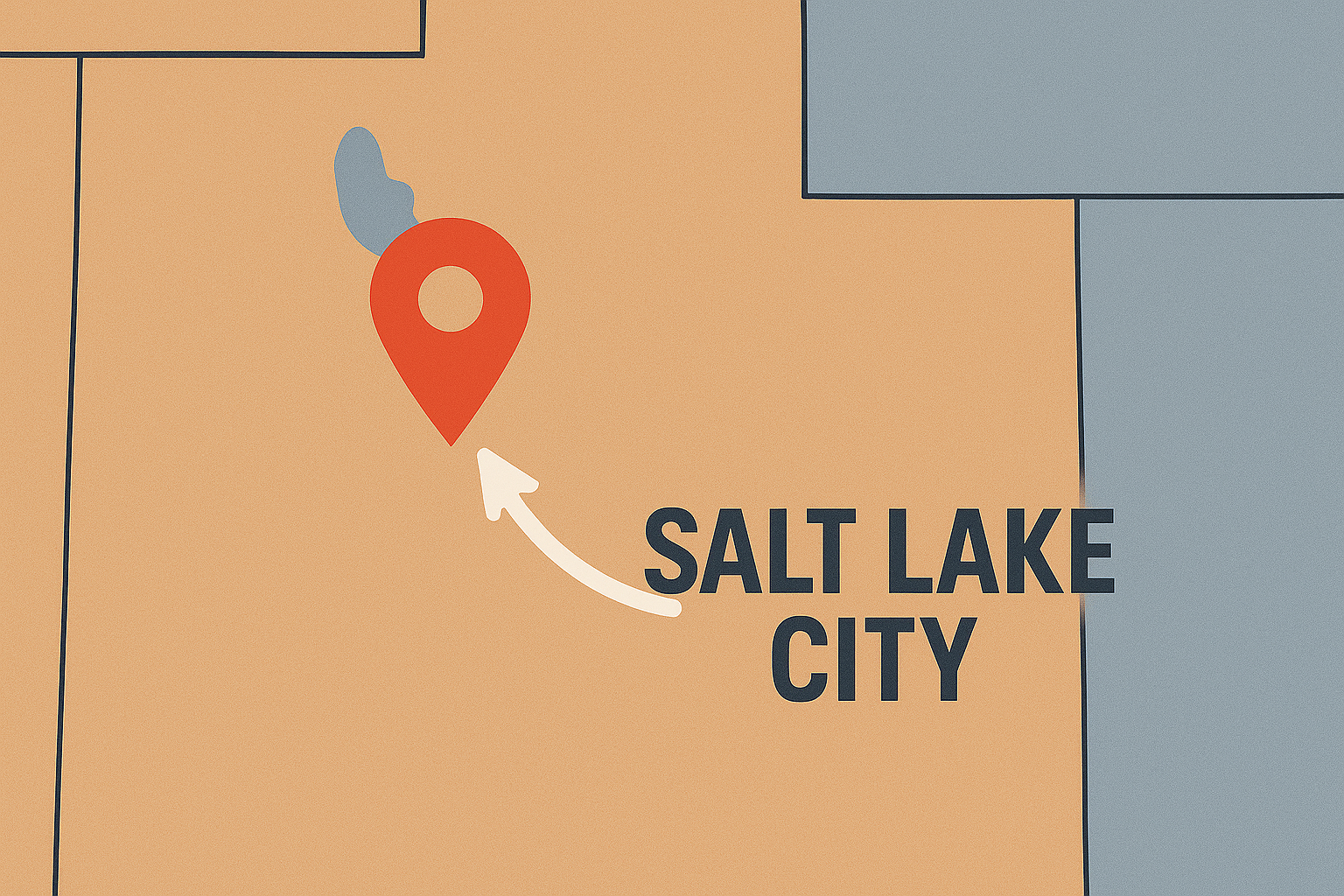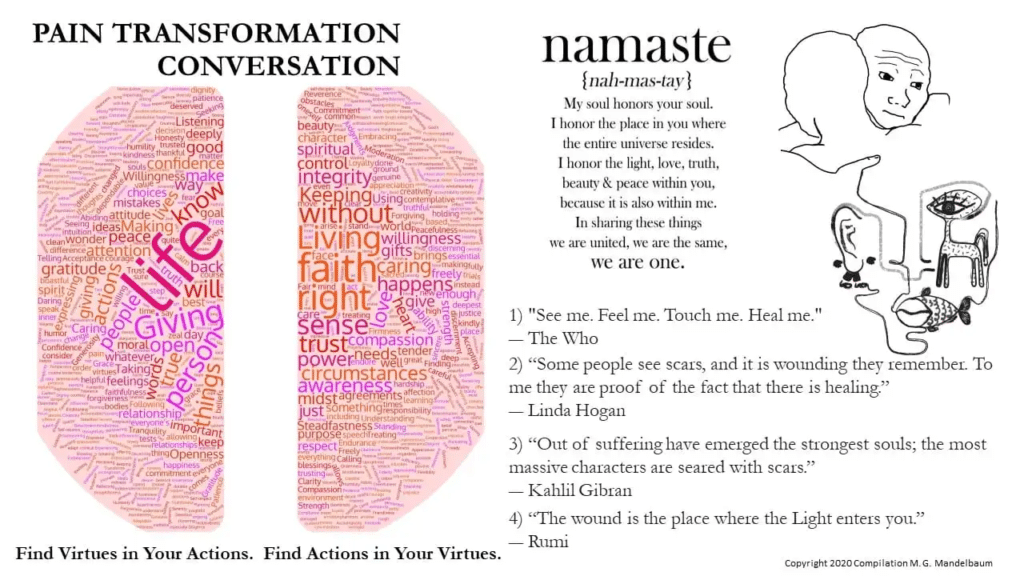Therapy has transformed, moving beyond the traditional office setting to create accessible, powerful connections online. This evolution means you can access profound growth and support from anywhere, including Salt Lake City, with a licensed psychologist who understands the pressures of both professional and personal life.
Your first therapy session is more than just a conversation; it’s the foundation for meaningful, lasting change.
What Is a Therapy Session?
A therapy session is a dedicated, safe, and collaborative space for you to explore your thoughts, feelings, and goals without judgment. It’s a partnership where a mental health professional guides you through talk therapy and other evidence-based treatments. The goal isn’t to be judged—it’s to gain understanding and build practical tools to navigate life’s challenges.
This personal growth journey is a process of discovery. Your therapist provides feedback and support, helping you untangle complex emotions and identify pathways toward a more fulfilling life.
The Four Stages of Therapy
Starting therapy is a significant step, and understanding the process can make it feel more approachable.
Ready to Start Therapy?
Your healing journey can begin today. Fill out the form below to connect with a therapist who truly listens and understands.
The journey typically unfolds in four distinct stages.
1. Beginning (The First Appointment)
Your first appointment is a mutual introduction. You’ll discuss what brought you to therapy, your initial goals, and how the process works. It’s normal to feel a bit daunted when meeting a new therapist, so this session is also about seeing if it’s a good fit.
2. Exploration (Building the Relationship)
As you continue, you’ll begin to build a trusting relationship with your therapist. This is the stage where you feel more comfortable sharing difficult emotions and experiences. It’s a crucial phase for developing the safety needed for deep, honest work.
3. Insight and Growth (The Heart of Treatment)
This is where the core work happens. You’ll start to recognize patterns, address fears, and work through challenges. Using approaches like Dialectical Behavior Therapy (DBT), you will develop skills to manage emotions, improve relationships, and reframe unhelpful thought patterns.
4. Integration (Moving Forward with Confidence)
In the final stage, you begin to integrate your new skills and insights into your daily life. Therapy empowers you to apply what you’ve learned in person, at work, and at home. This is where lasting change solidifies, building a foundation of resilience and confidence.
What to Say in Your First Therapy Session
Many people wonder what they should talk about in their first therapy session. It’s okay to feel uncertain. There are no “perfect” words, and a trained clinician will guide the conversation.
You can start by sharing:
- What prompted you to seek therapy now.
- What you’ve tried in the past to address the issue.
- What you hope to change or achieve.
Honesty and curiosity are your best tools. Therapy is most effective when you provide feedback on what feels helpful. Your therapist is there to create a supportive space, so you don’t need to have it all figured out beforehand.

Photo by Vitaly Gariev on Unsplash
The Value of Therapy: Why It’s a Worthwhile Investment
Viewing therapy as a cost misses the bigger picture. It’s a profound personal investment in your well-being. The value extends far beyond the session, leading to better relationships, emotional stability, and professional success. Licensed psychologists bring years of specialized training and evidence-based methods to your sessions.
Many people are concerned about how to pay for therapy. While premium services are an investment, many health insurance plans offer out-of-network insurance coverage or reimbursement. It’s worth exploring your options. Ultimately, your mental health is foundational to every part of your life, making it one of the most important investments you can make.
Online Therapy vs. Face-to-Face Therapy
One of the biggest shifts in mental health care is the rise of online therapy. Virtual sessions offer incredible flexibility and accessibility, allowing clients in Salt Lake City and across 43 states to connect with a therapist seamlessly. Confidentiality and therapeutic depth are maintained, creating a powerful space for healing from the comfort of your own home.
Of course, face-to-face therapy remains a valuable option for those who prefer an in-person connection. The choice between online and in-person therapy is personal. What matters most isn’t the format, but the strength of the relationship between you and your therapist.
Why Salt Lake City Needs Access to a Virtual Therapist
Salt Lake City is home to a dynamic workforce, with many residents working in high-stress professions such as nurse practitioners, construction managers, information systems managers, and electrical engineers.
In addition to these top-paying roles, the city’s economy is driven by key industries like healthcare, government, transportation, manufacturing, and professional services. The demands placed on these professionals are significant, long hours, high expectations, and constant pressure to perform can take a real toll on mental health.
For many, finding time for self-care can be nearly impossible within a packed schedule. That’s where virtual therapy makes a profound difference. A virtual therapist provides the flexibility busy professionals need, allowing them to access evidence-based support before or after work, from the comfort of their home or office, or even while traveling. By addressing the unique challenges faced by Salt Lake City’s workforce, virtual therapy becomes not just a convenience, but a vital tool for sustaining resilience, emotional balance, and optimal performance—no matter how demanding life gets.
How to Know You’ve Found the Right Therapist
Finding a good fit is essential for a successful therapeutic journey. How do you know you’ve found the right person?
Look for these signs:
- You feel a sense of comfort and trust.
- You feel genuinely heard and understood.
- You notice yourself making progress over time.
Reflect after your sessions. Does this therapist help you explore your thoughts and grow? Remember, not every therapist is the right one for everyone. A good therapist welcomes your feedback and wants to know how to best support you.
Preparing for Your First Appointment with Groundbreaker Therapy
Getting ready for your first appointment is a meaningful step toward your own growth. At Groundbreaker Therapy, we know that starting therapy and meeting with one therapist for the first time can bring a mix of curiosity and nerves. A little preparation can help you feel more at ease and ready to begin.
How to Prepare for Your First Session
Find a quiet, private space where you can focus and feel comfortable. Check your video connection before the session so everything runs smoothly. You don’t need to script what you’ll say. Just come as you are. If it helps, jot down a few thoughts or examples of what’s been on your mind. Therapy works best when you stay open to where the conversation naturally goes.
During our first meeting, I’ll listen closely and respond to what feels most important to you. This is your space to explore, reflect, and accept where you are right now. Think of therapy as a process rooted in psychology—one that helps you make sense of your thoughts, emotions, and experiences while giving you room to grow.
If you’d like some extra advice before your first session, visit the Groundbreaker Therapy page for free resources and preparation tips. You’ll also find information about how we protect your data and what to expect as you begin.
Health Insurance Coverage and Private Pay Options
Groundbreaker Therapy is a private pay practice. We don’t accept health insurance directly, and that’s intentional. It gives us the freedom to focus entirely on your care instead of external requirements or limits from insurance companies. Your data stays private, and your sessions can move at a pace that fits your goals.
If you have insurance, check your plan’s coverage for out-of-network or private pay reimbursement. Many clients submit a superbill and receive partial reimbursement. We’ll provide clear documentation and advice to help you navigate that process.
Private pay allows you to shape your therapy experience without restrictions. You can decide the length and frequency of your sessions and focus fully on progress, not paperwork.
Why Groundbreaker Therapy Is a Good Fit (Better Than In Person)
Starting therapy online often feels easier and more natural than walking into an office. At Groundbreaker Therapy, we’ve designed our virtual sessions to be just as personal and effective as meeting in person, but with more flexibility and privacy.
Online sessions make it easier to stay consistent, especially if you’re balancing work, family, or school. You can meet from a space that already feels safe and familiar, which helps you focus on what truly matters.
What makes us a good fit isn’t just convenience, it’s connection. Our sessions combine thoughtful psychology with real conversation, helping you feel understood and supported from the very beginning. Every session is designed around you: your story, your goals, your pace.
Starting Therapy is Taking the First Step
This first session isn’t just another appointment. It’s the start of something real, a choice to invest in your clarity, balance, and peace of mind. Therapy is both science and art, built on evidence and guided by trust. It grows over time, one conversation at a time.
And that leads naturally into what comes next.
Begin Your Groundbreaking Journey
Starting therapy for the first time can feel daunting. It’s completely normal to wonder what to expect in your first session or whether you’ve found the right fit. Sometimes a family member or friend gives you the nudge to begin, and sometimes you just decide it’s time to focus on your own growth and peace of mind.
You don’t need to have every answer right now. What matters is that you’re willing to sit with where you are and take that first step forward. Whether this is your first therapist or you’ve tried therapy before, my goal is to help you feel comfortable, supported, and understood. Together, we’ll walk through moments of anxiety and uncertainty and work toward a future that feels steady and meaningful.
Therapy is about acceptance, learning, and building tools that help you move through life with more clarity. If this feels like the right fit, I invite you to schedule your first session. You’ll find clear information about payment, insurance, and how to receive emails with next steps. Most importantly, you’ll be joining a supportive community that’s here to help you grow at your own pace.
Salt Lake City Mental Health Resources
If you’re in the Salt Lake City area and need immediate or ongoing support for mental health concerns, the following trusted local and national resources can help. Each organization provides compassionate, professional assistance from experienced providers and trained crisis counselors.
These services support individuals, families, and professionals working through emotional health, trauma, stress, or life transitions. Many of these organizations also work alongside private practices like Groundbreaker Therapy to provide a full continuum of care.
Whether you’re a university student, a healthcare professional, or someone simply seeking balance and peace of mind, these resources can connect you to qualified, evidence-based help when you need it most.
Local Mental Health Services
NAMI Utah (National Alliance on Mental Illness)
Offers free peer groups, education programs, and family support for those affected by mental health conditions.
- Address: 3269 South Main Street #230 Salt Lake City, Utah 84115
- Phone: (801) 323-9900
- Website: https://namiut.org/
Huntsman Mental Health Institute (University of Utah Health)
Provides comprehensive mental health care, including crisis stabilization, outpatient therapy, and research-based treatment.
- Address: 501 Chipeta Way, Salt Lake City, UT 84108
- Phone: (801) 583-2500
- Website: https://healthcare.utah.edu/hmhi
Salt Lake County Division of Behavioral Health Services
Connects residents to behavioral health programs, substance use treatment, and local crisis resources.
- Address: 2001 South State Street , Ste S2-300 Salt Lake City, Utah 84114
- Phone: (385) 468-4707
- Website: https://www.saltlakecounty.gov/behavioral-health/
Salt Lake Behavioral Health
Provides inpatient and outpatient treatment for adults, including trauma recovery, mood disorders, and addiction programs.
- Address: 3802 South 700 East, Salt Lake City, UT 84106
- Phone: (801) 264-6000
- Website: https://saltlakebehavioralhealth.com/
Mental Health America of Utah
Offers peer support, educational workshops, and community programs focused on emotional wellness and recovery.
- Address: 150 South 600 East Suite 3B Salt Lake City, UT 84102
- Phone: (801) 810-6522
- Website: https://mhautah.org/
Encircle – Salt Lake City
Provides therapy, resources, and family support for LGBTQ+ youth and their loved ones.
- Address: 358 South 700 East B304 Salt Lake City, Utah 84102
- Phone: (801) 613-7198 or (801) 613-7305
- Website: https://encircletogether.org/
Utah Pride Center
Offers counseling, education, and advocacy programs for LGBTQ+ individuals and families.
- Address: 68 South Main Street, 9th Floor Salt Lake City, Utah 84101
- Phone: (801) 539-8800
- Website: https://www.utahpridecenter.org/
VA Salt Lake City Health Care System
Provides counseling, PTSD treatment, and comprehensive behavioral health services for veterans and their families.
- Address: 500 Foothill Drive, Salt Lake City, UT 84148
- Phone: (801) 582-1565
- Website: https://www.va.gov/salt-lake-city-health-care/
Utah LGBTQ+ SafeZone Resources (Utah LGBTQ+ Chamber of Commerce)
Connects LGBTQ+ individuals to safe, inclusive healthcare and mental health providers.
- Phone: (801) 441-0517
- Website: https://www.utahlgbtqchamber.org/lgbtq-safezone-resources/
LGBTQ-Affirmative Therapists Guild of Utah
A professional network of licensed therapists providing affirming, inclusive mental health care.
- Website: https://lgbtqtherapists.com/
Crisis and Emergency Support
If you or someone you know is in immediate danger, call 911 or go to your nearest emergency room.
- National Suicide and Crisis Lifeline: Dial 988 (24/7, free, confidential)
- Crisis Text Line: Text HELLO to 741741
- Huntsman Mental Health Institute Crisis Line: (801) 587-3000 (24-hour mental health support)
How to Use These Resources
Therapy is just one piece of your mental health support network. These organizations can assist with crisis care, medication management, group programs, and specialized services for:
- Students and young adults
- Veterans and military families
- LGBTQ+ individuals
- Trauma and substance use recovery
- Family and relationship counseling
- Professional stress, burnout, and adjustment challenges
Groundbreaker Therapy is not affiliated with these organizations, but our therapy services can complement the care they provide. Through personalized, evidence-based treatment, we offer a safe space for continued growth, self-discovery, and healing for clients across Utah and beyond.



